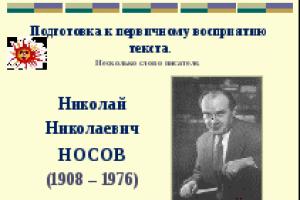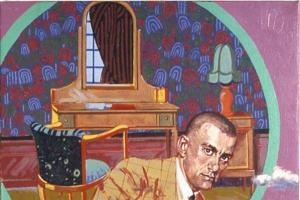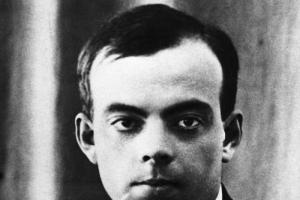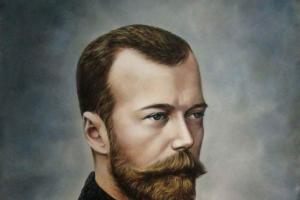S.I.Ozhegov, N.Yu.Shvedova
Explanatory dictionary of the Russian language
Ah, union. 1. Connects sentences or members of a sentence, expressing opposition, comparison. He went and I stayed. Write with a pen, not a pencil. Handsome, not smart. 2. Attaches sentences or sentence members with the meaning of adding something. when presented sequentially, with the meaning of explanation, objection, strengthening, transition to another thought. There is a house on the mountain, and a stream under the mountain. There would be a swamp, but there would be devils (last). What you. are you doing today? and tomorrow? It's not his fault. - Who is to blame if not him? 3. Usage at the beginning of interrogative and exclamatory sentences, as well as at the beginning of speech to enhance expressiveness and persuasiveness (often in combination with pronouns, adverbs, and other conjunctions). How much fun we will have! Still, I disagree. * And also (and), conjunction - expresses accession, intensifying or comparative addition. A skilled driver and also a mechanic. He acts in films and also on television. Otherwise - 1) union, otherwise, otherwise. Hurry up, otherwise you'll be late; 2) in reality, but in reality. If it were so, otherwise it would be the other way around; Otherwise! (otherwise, of course!) (simple) - in a response, expresses: 1) confident agreement, confirmation. Cold? - Otherwise! Frost in the yard; 2) ironic disagreement, denial: Will he go? - Otherwise! Wait! And not that, the union is the same as that (in 1 meaning). Or even a union - attaches a message about something. unwanted or unexpected. He will scream, or even beat you.
A2, particle (colloquial). 1. Indicates a question or response to someone's. words. Let's go for a walk, shall we? Why don't you answer? - A? What's happened? 2. Strengthens appeal. Vanya, oh Vanya! 3. [pronounced with varying degrees of duration]. Expresses clarification, satisfied understanding. Ah, so it was you! Why didn't you call? - The phone didn't work! - A-ah! Ahh, so that’s what’s the matter!
A3 [pronounced with varying degrees of duration], int. Expresses annoyance, bitterness, as well as surprise, gloating and other similar feelings. What have I done? - A-ah! Ah, gotcha!
Ah..., prefix. Forms nouns and adjectives with meaning. absence (in words with a foreign root), the same as “not”, for example. asymmetry, illogical, immoral, arrhythmic, asynchronous.
Lampshade, -a, m. Cap for a lamp, lamp. Green a. 11 adj. lampshaded, oh, oh.
ABAZINSKY, oh, oh. 1. see Abaza. 2. Relating to the Abazas, their language, national character, way of life, culture, as well as the territory of their residence, its internal structure, history; such as the Abazins. A. language (Abkhaz-Adyghe group of Caucasian languages). In Abaza (adv.).
ABAZINS, -in, units. -Inets, -ntsa, m. People living in Karachay-Cherkessia and Adygea. II Abaza, -i. II adj., Abaza, -aya, -oe.
ABBOT, -a, m. 1. Abbot of a male Catholic monastery. 2. Catholic clergyman. II adj. abbey, -aya, -oe.
ABBATESS, -y, w. Abbess of a female Catholic monastery.
ABBEY, -a, Wed. Catholic monastery.
ABBREVIATION, -ы, zh. In word formation: a noun formed from truncated segments of words (for example, executive committee, Komsomol), from the same segments in combination with a whole word (for example, maternity hospital, spare parts), as well as from the initial sounds of words or the names of their initial letters (for example ., university, ATS, MKhAT, EVM, SKV), compound word. II adj. abbreviated, -aya, -oe.
ABERRATION, -i, g. (specialist.). Deviation from something, as well as distortion of something. A. light rays. A. optical systems (image distortion). A. ideas (translated). II adj. aberrational, -aya, -oe.
PARAGRAPH, -a, m. 1. Red line, indent at the beginning of the line. Start writing with a paragraph. 2. Text between two such indents. Read the first a.
ABYSSINIAN, oh, oh. 1. see Abyssinians. 2. Relating to the Abyssinians, their language, national character, way of life, culture, as well as Abyssinia (the former name of Ethiopia), its territory, internal structure, history; such as the Abyssinians, in Abyssinia. In Abyssinian (adv.).
ABYSSINIANS, -ev, vd. -nets, -ntsa, m. The former name of the population of Ethiopia (Abyssinia), Ethiopians. II Abyssinian, -i. II adj. Abyssinian, -aya, -oe.
APPLICANT, -a, m. 1. High school graduate (obsolete). 2. A person entering a higher or special educational institution. II applicant, -i. II adj. entrant, -aya, -oe.
SUBSCRIPTION, -a, m. A document granting the right to use something, something. service, as well as the right itself. A. to the theater. A. for a series of lectures. Interlibrary a. II adj. subscription, oh, oh.
SUBSCRIBER, -a, m. A person using a subscription, who has the right to use something. by subscription. A. libraries. A. telephone network (a person or institution that has a telephone). II subscriber, -i (colloquial). II adj. subscriber, -aya, -oh.
SUBSCRIBE, -ru, -ruesh; -anny; owls and nesov., that. Receive (-chat) a subscription, become (be) a subscriber of something. A. I’m lying in the theater.
BOARDING, -a, m. In the era of rowing and sailing fleets: attacking an enemy ship when approaching it directly for hand-to-hand combat. Take on a. (also translated). II adj. boarding, oh, oh.
ABORIGIN, -a, m. (book). Indigenous inhabitant of a country or locality. II aboriginal, -i (colloquial).
ABORIGINAL, oh, oh. Relating to the aborigines, to their life, to their original habitats; just like the aborigines.
ABORTION, -a, m. Premature termination of pregnancy, spontaneous or artificial, miscarriage.
ABORTIONAL, -aya, -oe (special). 1. Suspending or dramatically changing the development and course of the disease. A. method. Abortifacients. 2. Underdeveloped. Abortive organs of plants. II noun abortion, -i, f. (to 2 digits).
ABRASIVE, -a, m. (special). A hard, fine-grained or powdery substance (flint, emery, corundum, carborundum, pumice, garnet) used for grinding, polishing, and sharpening. II adj. abrasive, oh, oh. Abrasive materials. A. tool (grinding, polishing).
ABRACADABRA, -s, w. A meaningless, incomprehensible set of words [originally: a mysterious Persian word that served as a saving magic spell].
ABREK, -a, m. During the annexation of the Caucasus to Russia: a highlander who participated in the fight against the tsarist troops and administration.
APRICOT, -a, gen.pl. -ov, m. Southern fruit tree family. Rosaceae, producing juicy sweet fruits with large seeds, as well as its fruit. II adj. apricot, -aya, -oe s apricot, oaya, -oe.
APRICOT, oh, oh. 1. see apricot. 2. Yellow-red, the color of a ripe apricot.
ABRIS, -a,m. (book). Outline of an object, contour. II adj. outlined, -aya, -oe.
ABSENTEEISM [sente], -a, m. (book). Evasion of voters from participating in elections to government bodies. II adj. ab-centeist, -aya, -oe.
ABSOLUTE, -a, m. (book). 1. In philosophy: the eternal, unchanging fundamental principle of everything that exists (spirit, idea, deity). 2. Something self-sufficient, independent of others. conditions and relationships. Build something. in a.
ABSOLUTISM, a, m. A form of government in which supreme power belongs entirely to an autocratic monarch, an unlimited monarchy. adj. absolutist, -aya, -oe.
ABSOLUTE, -th, -oe; -ten, -tna. 1. full f. Unconditional, not dependent on anything, taken without comparison with anything. The absolute value of a real number (in mathematics: the number itself, taken without the + or - sign). A. zero (temperature -273.15° C). A. champion (athlete - winner in all-around, in certain other types of competitions). 2. Perfect, complete. A. peace. He is absolutely (adv.) right. Absolute majority (overwhelming majority). Absolute monarchy (autocracy). A. hearing (hearing that accurately determines the pitch of any tone). II noun absoluteness, -i, f. (to 2 digits).
ABSTRACT, -ru, -ruesh; -a-ny; owls and nesov., that (book). Produce an abstraction (in 1 value) of something.
Plan:
- Introduction
- 1 Biography
- 2 Bibliography
- 3 Electronic versions of dictionaries Notes
Introduction
Sergei Ivanovich Ozhegov(1900-1964) - linguist, lexicographer, Doctor of Philology, professor.
1. Biography
Photograph of the house in the city of Kuvshinovo, where he was born in September 1900 Sergei Ivanovich Ozhegov. On the right side of the house you can see a memorial plaque in honor of Sergei Ivanovich Ozhegov. On the left is a memorial plaque in honor of Alexei Maksimovich Gorky, who lived in this house with his friend N.Z. Vasiliev from October 1897 to mid-January 1898
Sergei Ozhegov was born on September 22 (9), 1900 in the village of Kamenoye (now the city of Kuvshinovo) in the Tver province in the family of a process engineer at the Kamensk paper and cardboard factory, Ivan Ivanovich Ozhegov. Sergei Ivanovich was the eldest of three brothers. On the eve of the First World War, the family moved to Petrograd, where Sergei graduated from high school. Then he entered the philological faculty of Leningrad University, but classes were soon interrupted - Ozhegov was called to the front. He took part in battles in western Russia and Ukraine. In 1922, Ozhegov completed his military service at the headquarters of the Kharkov Military District and immediately began studying at the Faculty of Linguistics and Material Culture of Leningrad University. In 1926, university teachers Viktor Vinogradov and Lev Shcherba recommended him to graduate school at the Institute of Comparative History of Literatures and Languages of the West and East.
In 1936, Ozhegov moved to Moscow. Since 1937, he taught at Moscow universities (MIFLI, MSPI). Since 1939, Ozhegov has been a researcher at the Institute of Language and Writing, the Institute of the Russian Language, and the Institute of Linguistics of the USSR Academy of Sciences.
During World War II, Ozhegov did not evacuate from the capital, but remained to teach.
Founder and first head of the speech culture sector of the Institute of Russian Language of the USSR Academy of Sciences (since 1952).
One of the compilers of the “Explanatory Dictionary of the Russian Language” edited by D. N. Ushakov (1935-1940). The author of one of the most famous and popular Russian dictionaries - the one-volume “Dictionary of the Russian Language” (1949, reprinted several times with corrections and updates, since 1992 - with the participation of N. Yu. Shvedova); Ozhegov's dictionary records modern commonly used vocabulary, demonstrates the compatibility of words and typical phraseological units. The vocabulary of Ozhegov's dictionary formed the basis of many translation dictionaries.
The main works are devoted to Russian lexicology and lexicography, the history of the Russian literary language, sociolinguistics, the culture of Russian speech, the language of individual writers (P. A. Plavilshchikov, I. A. Krylov, A. N. Ostrovsky) and others.
Editor of the “Spelling Dictionary of the Russian Language” (1956, 5th ed., 1963), dictionaries-reference books “Russian literary pronunciation and stress” (1955), “Correctness of Russian speech” (1962). Founder and editor-in-chief of the collections “Issues of the Culture of Speech” (1955-1965).
On the initiative of Sergei Ivanovich Ozhegov, in 1958, a Russian Language Help Service was created at the Institute of the Russian Language, responding to requests from organizations and individuals regarding the correctness of Russian speech.
Ozhegov was a member of the Moscow City Council Commission on the naming of institutions and streets of Moscow, the Subject Commission on the Russian Language of the Ministry of Education of the RSFSR, deputy chairman of the Academy of Sciences Commission on streamlining the writing and pronunciation of foreign proper and geographical names, scientific consultant of the All-Russian Theater Society, State Television and Radio; member of the Spelling Commission of the Academy of Sciences, which prepared the “Rules of Russian Spelling and Punctuation.”
Sergei Ivanovich Ozhegov died in Moscow on December 15, 1964. The urn with his ashes rests in the wall of the necropolis of the Novodevichy cemetery.
2. Bibliography
- Ozhegov Sergey Ivanovich. Dictionary of the Russian language / Ch. ed. S. P. Obnorsky. 50,000 words. M.: State. ed. foreign and national Dictionaries, 1949. XVIII, 968 pp. In comp. dictionaries were attended by prof. G. O. Vinokur and V. A. Petrosyan.
- 2nd 52000 words. 1952. 843 s
- 3rd 1953. 848 s
- 4th 53,000 words. 1960. 900 s
- 6th 1964. 900 s
- 7th M.: Sov. enc., 1968. 900 from 150,000 copies.
- 8th 1970. 900 from 150,000 copies.
- 9th Ok. 57,000 words Ed. N. Yu. Shvedova. 1972. 847 with 120,000 copies.
- 10th 1973. 846 s
- 11th 1975. 847 with 75,000 copies.
- 12th 1978. 846 s
- 13th ed., rev. M.: Rus. lang., 1981. 816 with 123,000 copies.
- 14th era. 1982. 816 with 105,000 copies. 1983. 816 with 115,000 copies.
- 15th era. 1984. 816 with 160,000 copies.
- 16th revision 1984. 797 with 120,000 copies.
- 17th era. 1985. 797 from 195,000 copies.
- 18th era. 1986. 795 with 300,000 copies.
- 18th era. 1987. 795 with 220,000 copies.
- 19th revision 1987. 748 with 225,000 copies.
- 20th era. 57,000 words. 1988. 748 with 480,000 copies.
- 21st rev. and additional 70,000 words. M.: Rus. lang., 1989. 921 p.
- 22nd era. 1990. 921 with 200,000 copies.
- 23rd revision 1990. 915 with 100,000 copies. OK. 57000 words Ekaterinburg: “Ural-Soviet” (“News”), 1994. 796c. About 53,000 words. 4th ed., rev. and additional M., 1997. 763 p.
- Ozhegov Sergey Ivanovich, Shvedova Natalia Yulievna. Explanatory dictionary of the Russian language: 72,500 words and 7,500 phraseological expressions / Ros. AN, Institute of Rus. language, Russian cultural fund. M.: Az, 1992. 955 from 100,000 copies. 1993. 955 s
- 2nd revision and additional 1994. 908 with 100,000 copies.
- 2nd revision and additional 1995. 908 s
- 3rd stereotype. 1995. 928 from 100,000 copies. 80,000 words and phraseols. expressions.
- 4th ed. M.: Azbukovnik, 1997. 943 p.
3. Electronic versions of dictionaries
- Explanatory dictionary of S. I. Ozhegov, 1991 (online version)
- Ozhegov's Explanatory Dictionary online
- One-volume explanatory dictionary of the Russian language (contains 80,000 words and phraseological expressions (counting headwords, derivative words), placed in the word-formation nest, and phraseological expressions and idioms)
- Ozhegov S.I. Dictionary of the Russian language
- Dictionary. S.I. Ozhegov, N. Yu. Shvedova. (online version)
- "Ozhegov's Explanatory Dictionary"
- Ozhegov's dictionary with easy search.
- “Explanatory Dictionary of Ozhegov S.I.” (Online version)
- S.I. Ozhegov, N. Yu. Shvedova. Explanatory dictionary of the Russian language.
This abstract is based on an article from Russian Wikipedia. Synchronization completed 07/10/11 01:50:59
Similar abstracts: Sai Sergey Ivanovich , Alyapkin Sergey Ivanovich , Aksyonenko Sergey Ivanovich , Odintsov Sergey Ivanovich ,
|
The one-volume explanatory dictionary of the Russian language contains 80,000 words and phraseological expressions (counting head words, derivative words placed in the word-formation nest, and phraseological expressions and idioms following the + sign). The words and phraseological units contained in the dictionary relate to general literary Russian vocabulary, as well as to special areas of the language that interact with it; The dictionary also widely represents colloquial vocabulary used in literature and colloquial speech. A dictionary entry includes an interpretation of the meaning, a description of the structure of a polysemantic word, examples of use, information about the compatibility of the word, grammatical and accentological (if necessary, also orthoepic) characteristics of the word. The dictionary entry is accompanied by a description of those phraseological expressions that are generated by this word or are somehow connected with it. The book is addressed to a wide range of readers: it can be used by those starting to study... Publisher: "ITI Technologies" (2005) Format: 84x108/16, 944 pages.
ISBN: 5-902-638-09-7 |
Other books on similar topics:
| Author | Book | Description | Year | Price | Book type |
|---|---|---|---|---|---|
| The explanatory dictionary of the Russian language contains about 4,500 words and includes applications: family connections according to V. Dahl’s dictionary, a dictionary of the Old Church Slavonic language, the etymology of Russian surnames, toponymy of countries and... - @ Sovremennik, @ (format: 84x104/32, 288 pages) @ Schoolchild's dictionaries @ @ | 1998 | 70 | paper book | ||
| I. A. Vasyukova | Contains about 2000 of the most common words in the modern Russian language. Built according to the nesting principle. Each word is provided with an interpretation of all its meanings and grammatical characteristics... - @Astrel, AST, @(format: 60x84/32, 480 pages) @ @ @ | 2002 | 147 | paper book | |
| Vladimir Dal | V. I. Dahl's dictionary is an inexhaustible treasury of the Russian language, presented in all its completeness, originality and splendor. `... Every line of his teaches and enlightens me, bringing me closer to... - @Eksmo-Press, @(format: 60x90/32, 576 pages) @ @ @ | 2001 | 240 | paper book | |
| Mikhailova O.V. | Explanatory dictionary of the Russian language. Each dictionary entry indicates grammatical and stylistic marks, and provides information about the meaning, correct spelling and pronunciation of words. A dictionary can be... - @Victoria plus, @(format: 84x108/16, 944 pages) @Dictionaries @ @ | 2018 | 278 | paper book | |
| The explanatory dictionary of the Russian language contains about 4,500 words and includes applications: family connections according to V. Dahl’s dictionary, a dictionary of the Old Church Slavonic language, the etymology of Russian surnames, toponymy of countries and... - @Olma-Press, @(format: 84x108/32, 320 pages) @ Illustrated dictionaries for schoolchildren @ @ | 2000 | 220 | paper book | ||
| Mikhailova O. V. | The explanatory dictionary of the Russian language contains about 10 thousand dictionary entries, including about 50 thousand words, phrases and expressions that form the basis of the vocabulary of modern Russian... - @Victoria Plus, @(format: 84x108/16, 944 pages) @Dictionaries @ @ | 2015 | 411 | paper book | |
| Mikhailova O. V. | The explanatory dictionary of the Russian language contains about 10 thousand dictionary entries, including about 50 thousand words, phrases and expressions that form the basis of the vocabulary of modern Russian... - @Victoria plus, @(format: 60x84/32, 480 pages) @Dictionaries @ @ | 2015 | 357 | paper book | |
| Mikhailova O.V. | The explanatory dictionary of the Russian language contains about 10,000 dictionary entries, including about 50,000 words, phrases and expressions that form the basis of the vocabulary of the modern Russian language... - @Victoria plus, @(format: 84x108/32, 768 pages) @Dictionaries @ @ | 2010 | 357 | paper book | |
| Pukhaeva L. S., Alieva T. S. | The explanatory dictionary of the Russian language includes commonly used vocabulary and the latest borrowings, as well as words that have returned to active use in recent years - @Yunves, @(format: 60x84/32, 480 pages) @ @ @ | 1998 | 290 | paper book | |
| S. I. Ozhegov, N. Yu. Shvedova | The one-volume explanatory dictionary of the Russian language contains 72,500 words (of which 42,500 are headwords, i.e., those that open the article, and 30,000 derivative words placed in the nest) and 7,500 phraseological... - @АЗЪ, @(format: 84x108/16, 928 pages .) @ @ @ | 1995 | 720 | paper book | |
| S. I. Ozhegov and N. Yu. Shvedova | The one-volume explanatory dictionary of the Russian language contains 72,500 words (of which 42,500 are headwords, i.e., those that open the article, and 30,000 derivative words, marked in the slot) and 7,500 phraseological... - @АЗЪ, @(format: 84x108, 928 pages) @@@ | 1994 | 520 | paper book | |
| S. I. Ozhegov, N. Yu. Shvedova | The one-volume explanatory dictionary of the Russian language contains 72,500 words (of which 42,500 are headwords, i.e., those that open the article, and 30,000 derivative words placed in the nest) and 7,500 phraseological... - @АЗЪ, @(format: 84x108/16, 960 pages .) @ @ @ | 1992 | 710 | paper book | |
| S. I. Ozhegov and N. Yu. Shvedova | The one-volume explanatory dictionary of the Russian language contains 80,000 words and phraseological expressions (counting headwords, derivative words placed in the word-formation nest, and phraseological... - @АЗЪ, @(format: 84x108/16, 944 pages) @ @ @ | 1997 | 940 | paper book | |
| The dictionary has been compiled taking into account the changes that have occurred in the lexical composition of the Russian language over the past decade. Designed for schoolchildren, students, applicants, students, as well as teachers... - @Victoria, @(format: 84x108/32, 768 pages) @ @ @ | 2005 | 250 | paper book |
Grammar dictionary of the Russian language (Zaliznyak’s dictionary) compiled by A. A. Zaliznyak is a dictionary of approximately 100 thousand basic word forms of the Russian language with their full morphological description. Fundamental work on morphology, ... ... Wikipedia
Title page of the second edition of the Explanatory Dictionary of the Living Great Russian Language (original title: Explanatory Dictionary of the Living Great Russian Language ... Wikipedia
A four-volume explanatory dictionary containing interpretations of Russian and Church Slavonic words, compiled and published by the Second Branch of the Imperial Academy of Sciences in 1847. This was the second significant explanatory dictionary of the Russian language after ... Wikipedia
DICTIONARY- a dictionary containing words with an explanation of their meanings; may contain grammatical, etymological and stylistic characteristics of words, examples of use and other information. The four-volume four-volume book is widely known and has retained its significance to this day... Professional education. Dictionary
An explanatory dictionary is a dictionary containing the words and concepts of a language with a brief description of what the words mean, often accompanied by examples of how the words are used. An explanatory dictionary explains the lexical meaning of this or that... ... Wikipedia
This list contains a variety of record words (mostly from the Russian language). These words are extreme in terms of various criteria associated with the letters and combinations of letters contained in the word (a large number of letters, a large number ... ... Wikipedia
Explanatory Dictionary of Modern English ... Wikipedia
Dialectological maps of the Russian language are maps compiled using the methods of linguistic geography, displaying dialect associations (adverbs, groups of dialects, dialect zones) in the territory of distribution of the Russian language.... ... Wikipedia
We have a rich language that is so powerful and flexible that it can express literally everything in words. In its greatness it is not inferior to any language in the world. It is constantly being improved, while at the same time having a rich foundation and linguistic traditions. It is valuable and self-sufficient, it is the history of the people, and reflects the culture. The language must be protected and studied; this should become a necessity for every Russian person. The greatness and richness of a language are reflected in books, especially those related to classical literature, or in dictionaries and reference books that reflect norms. And of course, we must know and remember those great scientists who laid the foundation of our native language.
Linguistics
Linguistics is the study of language. She examines the main function of language as a means of communication, its historical development and patterns. Linguistics studies language theory: what is the system of language, what do they look like, what is the nature of grammatical categories, etc.
Science observes speech facts, perceives native speakers, linguistic phenomena, and linguistic material.
Linguistics is closely related to other sciences: history, archaeology, ethnography, psychology, philosophy. This happens because language accompanies us everywhere, in all areas of life.
In any science, key personalities are identified. Speaking about linguistics, we can name the following names: Viktor Vinogradov, Baudouin de Courtenay, Lev Shcherba and many others. Let’s also mention the name of our Russian scientist Sergei Ivanovich Ozhegov, to whom this article will be dedicated.
Famous linguist
Sergei Ozhegov, who graduated from a gymnasium in the Tver province, then from the philological faculty of Leningrad University, participated in battles on the territory of the Ukrainian fleet during the Civil War, completed graduate school, taught at many Moscow universities, today is better known as the author and compiler of the dictionary, which we also use this day. Collection of Russian words by S.I. Ozhegov is the result of the scientist’s colossal work. All modern common vocabulary is collected here, cases of combinability of words and the most common phraseological units are shown. This work was the basis for many translated collections of Russian words.

Ozhegov about language
Sergei Ozhegov spoke a lot about simplifying Russian spelling. The author's quotes, in addition, contained his proposals for improving the standard edition of the dictionary, published in 1964. Ozhegov said that it was necessary to add new words to the collection that have recently appeared in the Russian language. It is also necessary to reconsider and rethink the concepts of some new words. And of course, we need to pay attention to the norms of use and pronunciation of the Russian language.
Another statement by S.I. Ozhegova about language concerns the accuracy of word usage. The scientist spoke about a high culture of speech, which consists in the ability to find an intelligible, appropriate word to express one’s thoughts.
The dictionary of this Russian linguist has become a popular reference publication. Sergei Ozhegov himself joked about this. His quotes indicate the need for this collection: the number of published books in the dictionary is not inferior to the number of published works of the classics of Marxism-Leninism.
Life and art
The surname of the famous linguist has Siberian roots. It is based on the word “burn”; it was used to call a stick used to test the readiness of molten metal for casting.
Ozhegov Sergei Ivanovich, speaking about his biography, always mentioned the fact that their surname comes from Demidov serfs. In the family of his grandfather, who worked at the Yekaterinburg smelter for more than fifty years, there were fourteen children, and all of them subsequently had higher education.
Sergei Ozhegov was born into the family of a mining engineer and a midwife at a factory hospital at the end of September 1900. His small homeland is the village of Kamenoye in the former Tver province.

The thirst for knowledge inherent in their surname was manifested in the fact that, upon entering a higher educational institution, Sergei Ivanovich Ozhegov was forced to quit his studies and go to the front. But, having returned from the front, in the 20s he still graduated from Leningrad University. His teachers were well-known linguists at that time and L.V. Shcherba. Sergei Ozhegov immediately entered the circle of Leningrad scientists, then met his Moscow colleagues and gained fame there.
Since 1952, S.I. Ozhegov was the head of the literature department at the USSR Academy of Sciences. reflected in the "Explanatory Dictionary of the Russian Language", the chief editor of which was D.N. Ushakov. The development team included Ozhegov. Ozhegov’s also merit is the authorship of the “Dictionary of the Russian Language”.
Friendship with famous linguists
At that time, linguists V.V. were widely known in Leningrad. Vinogradov and D.I. Ushakov. They are also joined by Sergei Ivanovich Ozhegov, a linguist whose career is developing successfully here, since he is part of the group working on the four-volume edition of D.I. Ushakova.

More than thirty percent of the dictionary entries in this collection belong to S.I. Ozhegov. Also at this time, there is an active collection of materials for the “Dictionary of the plays of A.N. Ostrovsky”.
In addition, the young linguist is friends with the famous scientist A. Reformatsky, who would later become the author of a classic textbook on linguistics.
Ozhegov's main work
Working on material for the collection of D.I. Ozhegov was inspired by the idea of creating a dictionary for wide use. Work on this collection began before the war with the Nazis. Ozhegov believed in the strength of the Red Army, which would not allow the Germans into Moscow, so he remained in the city. He gave all this difficult war time to his brainchild. Moscow linguists G. Vinokur and V. Petrosyan were co-authors in the work on the dictionary. But gradually they moved away from work, and S.I. Ozhegov practically did all the work alone.

Sergei Ozhegov continued to work until the end. The dictionary of the Russian language was constantly refined by him, its construction was improved. The author accepted language as a constantly changing living phenomenon. He watched with pleasure the changes taking place in the language.
There are a number of known facts that will complement the knowledge about S.I. Ozhegov and his dictionary:
- many mispronounced the linguist's last name, placing emphasis on the second syllable;
- censorship initially did not allow the word “mistress” to pass through, seeing a depraved meaning in it;
- The censorship was also dissatisfied with church vocabulary, words such as “naloy”, “iconostasis”;
- the word “Leningrader” was introduced artificially during the re-release of the dictionary so that the words “sloth” and “Leninist” would not appear next to each other;
- the interpretation of the word “rape” in Ozhegov’s dictionary helped one guy get out of prison, since his actions did not fall under rape;
- there are six editions of Ozhegov’s dictionary published during his lifetime;
- Recently, student S.I. has been working on the dictionary. Ozhegova N.Yu Shvedova; the heirs of the famous linguist do not like some of the principles of its work.
Ozhegov family
Sergei Ozhegov experienced a lot in his life; his family experienced a lot of difficult, dramatic events characteristic of the Russian intelligentsia.
His father, an engineer at the Kuvshinova paper mill, received a four-room apartment where the local intelligentsia often gathered. The village was advanced: innovations were constantly introduced at the factory, a school, a People's House, and a hospital were built. Ozhegov’s mother worked as a midwife in the latter. In addition to Sergei, the eldest, there were two more sons in their family. The middle one became an architect, the youngest became a railway worker.
In 1909, the Ozhegov family moved to St. Petersburg. Here Sergei went to the gymnasium, enrolled in a chess club and a sports society. Having successfully graduated from high school, he entered a higher educational institution, but his education was interrupted by the war.

Nevertheless, after the war he still graduated from university. Before receiving his diploma, Sergei Ozhegov married a student from the philology department. Her father was a priest, an excellent self-taught musician who performed classical and folk music.
Ozhegov was a very sociable person. Friendly groups always gathered in his house, and a friendly atmosphere reigned.
Ozhegov’s wife was an excellent housewife; they lived together for about forty years and raised a son.
During the war, Ozhegov’s Moscow family moved to Tashkent, but almost all of the scientist’s Leningrad relatives could not survive the blockade. Survived by a niece. The five-year-old girl was sent to an orphanage, later S.I. Ozhegov found her and adopted her.
Merit of Ozhegov
Sergei Ivanovich Ozhegov did a lot for Russian linguistics, whose contribution to the Russian language is very great. He is the author and compiler of many dictionaries and reference books. S.I. Ozhegov is known as a member of the Moscow City Council Commission, deputy chairman of the Academy of Sciences commission, scientific consultant, and university teacher.

Scientific works of Ozhegov
The main scientific works of S.I. Ozhegov reflect issues of Russian lexicology and lexicography. He worked a lot on the history of the Russian language, studied sociolinguistics, and the culture of Russian speech. Also, Sergei Ozhegov, a linguist, made a great contribution to the study of the language of individual writers (I.A. Krylova, etc.). He worked a lot on the normativity of the Russian language: he was the editor of various reference dictionaries and language collections.








